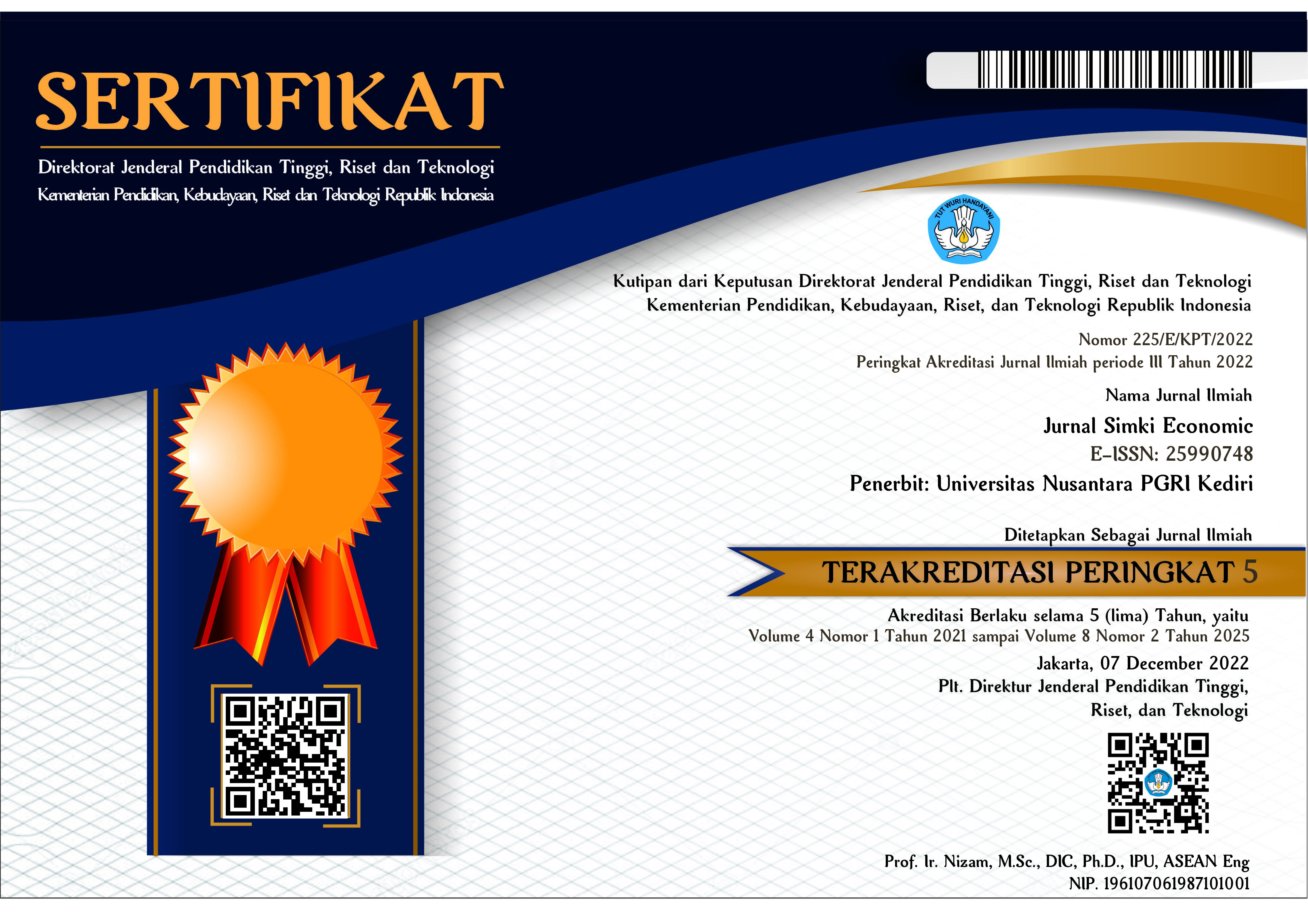Analisis Perdagangan Internasional Indonesia pada Kebijakan ACFTA dan AKFTA
 Abstract views: 980
,
Abstract views: 980
,
 PDF (Bahasa Indonesia) downloads: 1143
PDF (Bahasa Indonesia) downloads: 1143
Abstract
Current international trade policies open up opportunities to minimize various forms of obstacles, so that every party that agrees on these policies feels the convenience of the transaction process. These efforts are in line with what is stated in trade liberalization, namely reducing restrictions on trade, both in the form of tariff and non-tariff policies. Among several free international trade policies that have been ratified by Indonesia, there are two policies that have the potential to be optimized in order to get maximum benefits, namely the ASEAN China Free Trade Area (ACFTA) and the ASEAN Korea Free Trade Area (AKFTA). The purpose of this research is to analyze international trade on ACFTA and AKFTA policies. Where this study uses a qualitative research design with a descriptive approach method and the data used in this study are secondary data derived from previous research, publications originating from various government agencies both offline and online, as well as other supporting documents. The results of this study indicate that the ACFTA free trade policy was signed on November 4 2002 and its implementation began in January 2010 on the AKFTA was signed on August 24 2006, between the two free trade agreements each emphasizing the elimination of tariffs for 80% of goods traded. traded, protecting market access and ensuring a more transparent environment for investors for AKFTA, as well as the elimination of tariffs for 94.6% of all tariff lines for exports from Indonesia to China.
Downloads
References
Adnyana, M. (2018). Riview Skema ACFTA Terhadap Ekspor Indonesia Ke Tiongkok, Hongkong dan ASEAN. Jurnal Sosial Dan Humaniora. https://doi.org/10.47313/ppl.v1i1.196
Anh Thu, N., Van Trung, V., & Thanh Xuan, L. T. (2015). Assessing the Impact of ASEAN+3 Free Trade Agreements on ASEAN’s Trade Flows: A Gravity Model Approach1. Mediterranean Journal of Social Sciences. https://doi.org/10.5901/mjss.2015.v6n6p394
Arwanto, A., & Anggraini, W. (2021). Dinamika Ekonomi Politik Global dan Pembagian Kerja Internasional. Jurnal Politik Pemerintahan Dharma Praja. https://doi.org/10.33701/jppdp.v14i2.1977
Kanazawa, R., & Kang, M. (2019). The Impact of ASEAN-Korea Free Trade Agreement on Foreign Direct Investment. Korea and the World Economy. https://doi.org/10.46665/kwe.2019.04.20.1.43
Lim, E. S., & Breuer, J. B. (2019). Free trade agreements and market integration: Evidence from South Korea. Journal of International Money and Finance. https://doi.org/10.1016/j.jimonfin.2018.09.010
Lubis, A. D., & Nuryanti, S. (2016). Analisis Dampak ACFTA dan Kebijakan Perdagangan Kakao di Pasar Domestik dan China. Analisis Kebijakan Pertanian. https://doi.org/10.21082/akp.v9n2.2011.143-156
Morrow, P. M. (2010). Ricardian-Heckscher-Ohlin comparative advantage: Theory and evidence. Journal of International Economics. https://doi.org/10.1016/j.jinteco.2010.08.006
Nuri Aslami, N. S. A. (2022). Analisis Kebijakan Perdagangan Internasional. Journal Economy and Currency Study (JECS). https://doi.org/10.51178/jecs.v4i1.358
Purwana, A. S. (2019). Liberalisasi Perdagangan dan Penerimaan Kepabeanan Impor. Jurnal Perspektif Bea dan Cukai. https://doi.org/10.31092/jpbc.v3i2.555
Eddy Mayor, P. S. & Nurhidayat, R. (2016). Mengukur Tingkat Pemanfaatan FTA Yang Telah Dilakukan Indonesia : Studi Kasus Dengan Menggunakan FTA Preference Indicator. Kajian Ekonomi Dan Keuangan, 19(3), 284–298. https://doi.org/10.31685/kek.v19i3.147
Rohendi, A. (2014). Prinsip Liberalisasi Perdagangan World Trade Organization (WTO) dalam Pembaharuan Hukum Investasi di Indonesia (Undang-Undang Nomor 25 Tahun 2007). PADJADJARAN Jurnal Ilmu Hukum (Journal of Law). https://doi.org/10.22304/pjih.v1n2.a10
Sugiyono. (2015). Metode Penelitian Kombinasi (Mix Method). Bandung: Alfabeta.
Sunu, A. P. (2020). Perdagangan Internasional Sebagai Aspek Kedua dan Ketiga dari Power. Padjadjaran Journal of International Relations. https://doi.org/10.24198/padjir.v2i1.25602
UNComtrade. (2023). Indonesian Exports Trade Value to China And South Korea in the Period of 2006-2012.
Wong, C. K. K., Liew, V. K. Sen, & Affendy Arip, M. (2017). The impact of ASEAN free trade area on intra-ASEAN manufacturing trade. International Journal of Business and Society.
Copyright (c) 2024 Riady Ibnu Khaldun

This work is licensed under a Creative Commons Attribution 4.0 International License.














